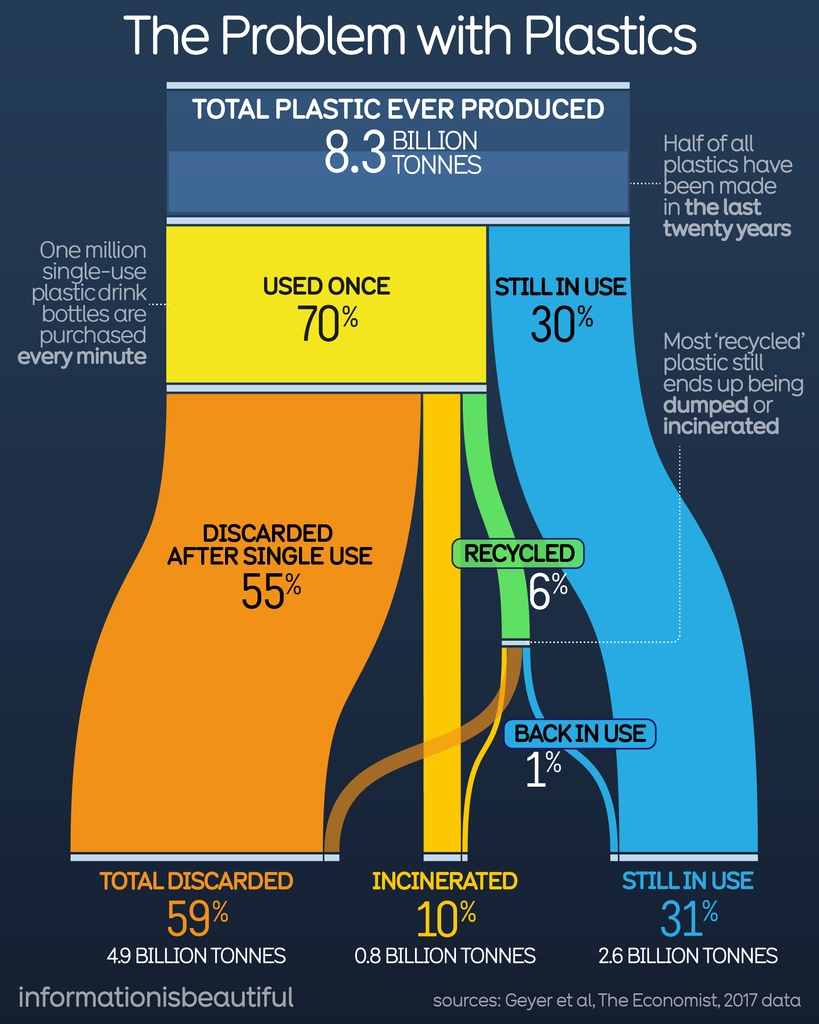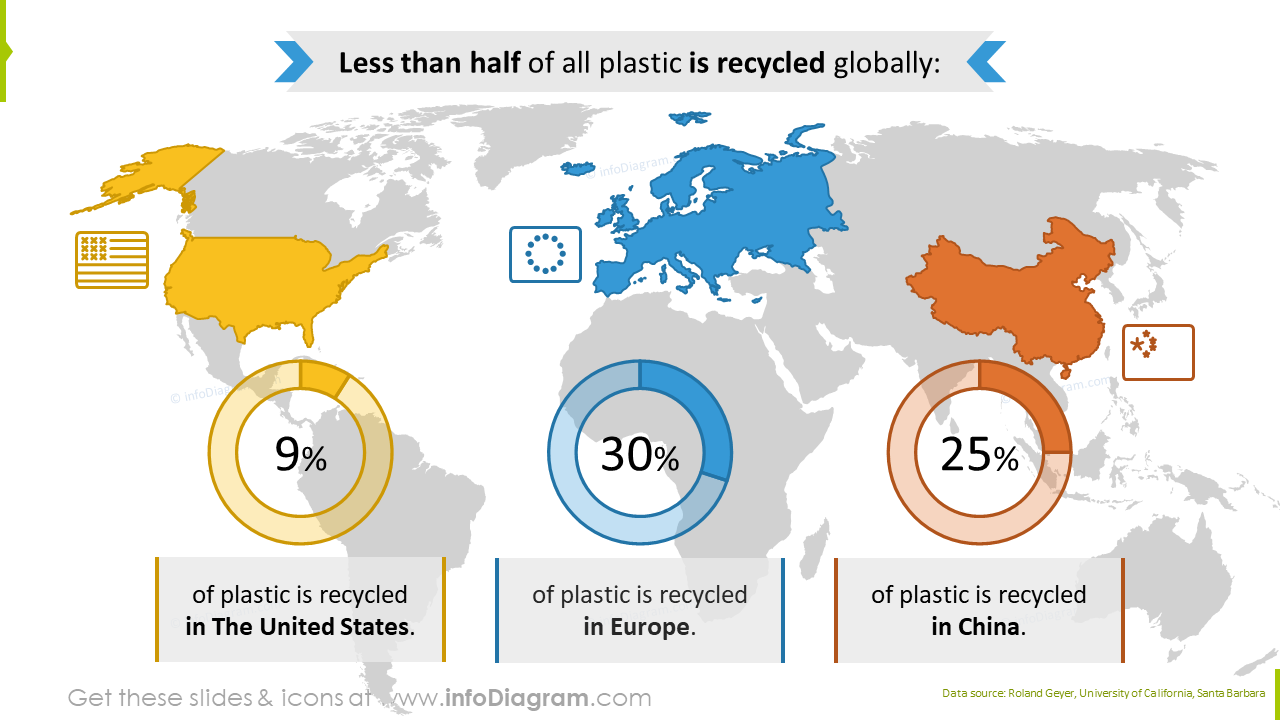Guess what % of plastics have been #recycled? No prizes :(
In the Netherlands the deluded recycling maffia have used recycled plastic for roads so a lot of that plastic is now breaking down into nanoplastics that pollute our bodies, but it's just beginning and will keep increasing releasing over thousands of years.
In this case #greenwashing #plastics through the concept of #recycling to keep the profits for the #top1pct is one
.
Only a meager 16% of recycled plastic is actually reused. Only 1.4% of used once plastic is reused
Of course I will keep recycling plastic and we all should but the difference can only be made by reducing / eliminating the use of plastic, especially single use plastics. (Hard to do but trying)
I don't see that as much anymore...
In Germany, incineration is called 'energetic recycling' or 'thermic recycling', which raises the percentage slightly.
Are there any similar local statistics?
Like, per country?
It’s sad that all the recycling efforts achieve so little.
The plastics use has been driven by industry and ‘supermarkets’ along with globalisation and large advertising budgets.
Fresh local produce doesn’t need plastic, but that is not where our food comes from any more. Shipping products hundreds, or thousands, of miles in convenient plastic packaging makes bigger profits for obscene corporations.
Local market stalls and halls have been closed down, pushed out by rising rents and rates, because big companies can get ‘sweet deals’ from local councils, and squeeze their suppliers and staff tokeep costs down. Including automation, and tax dodging.
The problem goes deeper than people think, when ‘convenience’ is valued over ecology.
How much of the discarded stuff could've been recycled had it not been thrown elsewhere ("recycling is a scam, bro!") and how much got deemed at the recycler impossible to process ("omg, someone stacked two Joghurt cups from the same multi pack. No machine can sort that!")?
Does recycled-then-discarded mean "discarded at recycler" or "after N re-cycles"?
For German speakers: There's a good episode of "Die Anstalt" on this topic.
As well as "used once" and "still in use" there must be some "used more than once but wore out so no longer still in use", just to pick the most obvious example. Clothing for a start, if each time it's worn and washed counts as a "use".
What about the plastic case for the router I threw away recently, after it was in use for a decade or two? Was that "used [just] once", albeit for quite a few years?
As a person who recycles, these stats make me sad.
But, they do make me buy less plastic packaging.


